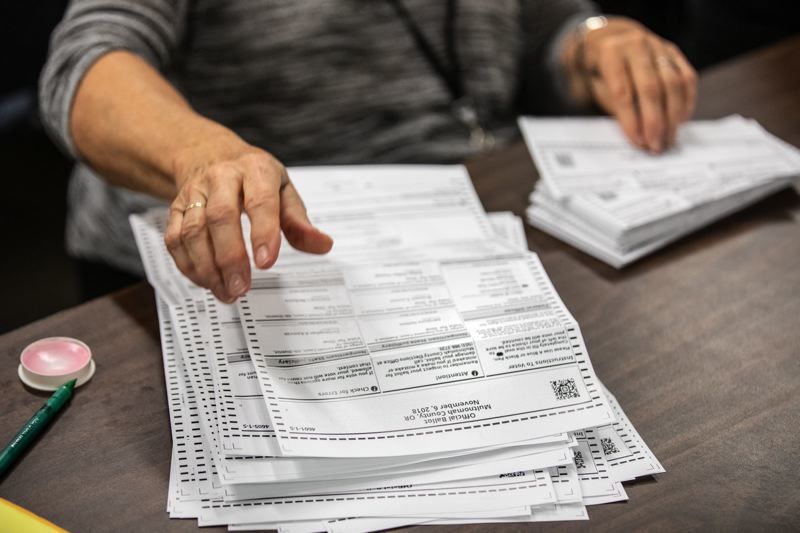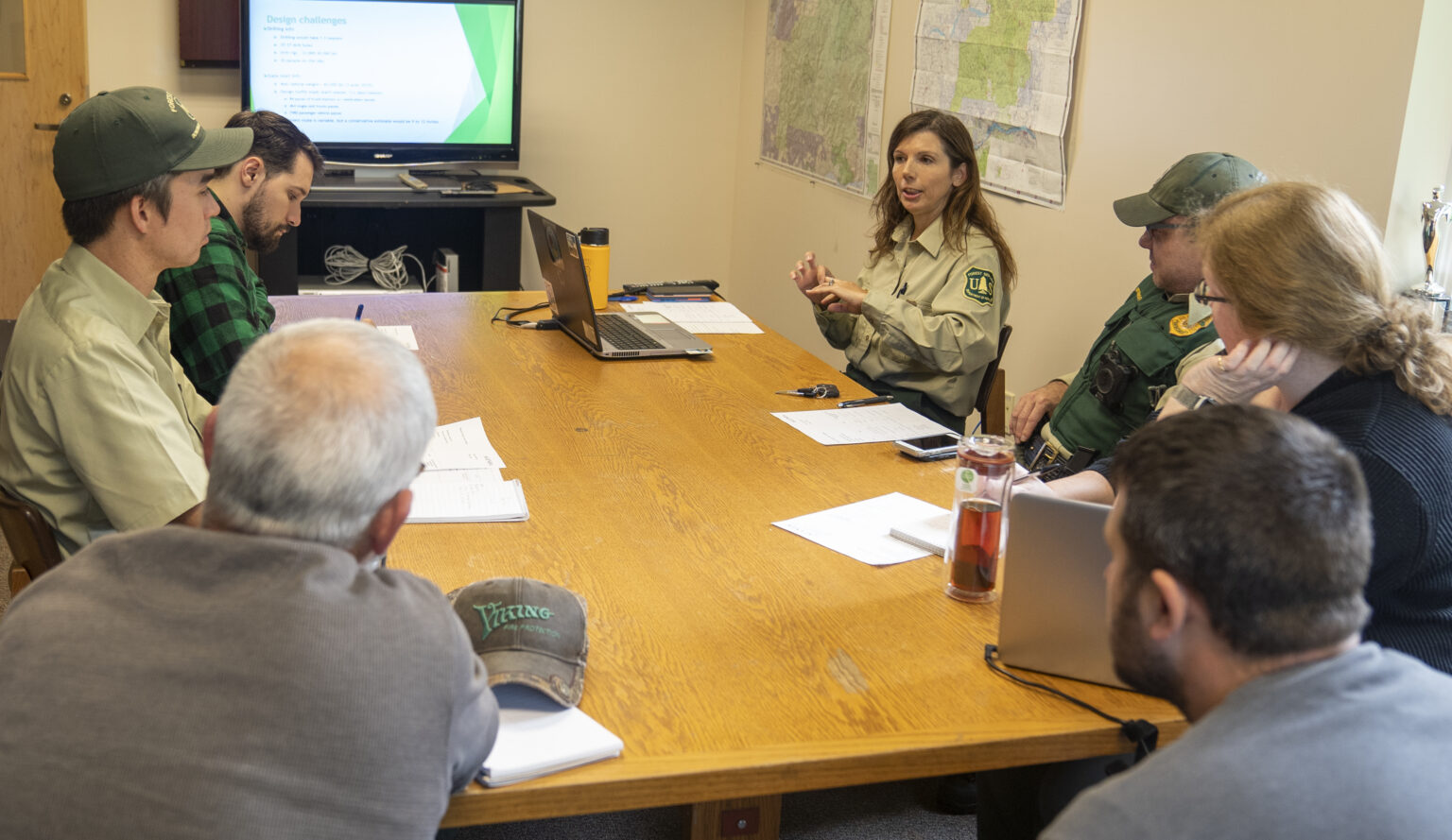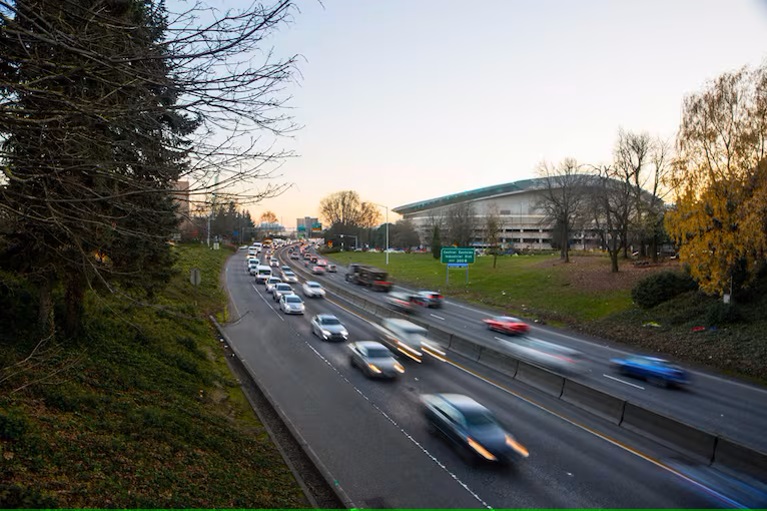Oregon’s ‘primary month’ is a reality check for 2022 campaigns
Published 1:10 pm Saturday, April 16, 2022

- PAMPLIN MEDIA GROUP FILE PHOTO - Oregon's vote-by-mail ballots are opened and scanned at local elections offices.
The official May 17 primary day for Oregon is a month away. But with ballots appearing in mailboxes over the next two weeks, the timeline for campaigns to make their case is even shorter.
‘Primary month’
Trending
Texas had its primary March 1. Oregon’s is officially on May 17, tied for fifth earliest among the states.
But Oregon’s primary “election day” is more like a “primary month.” The state’s vote-by-mail system will start sending ballots to voters on April 28.
Most will be returned well before the third Thursday of May, when the first results will be reported by Oregon’s Secretary of State.
Top political party: None
As of April 12, there are 2,971,809 registered voters in Oregon.
The largest bloc: “Non-affiliated,” with 1,027,139 voters — just over 34.5% of all voters. In second place are Democrats, with 1,018,350 registered voters. Republicans are third, with 725,055 registered members.
Trending
The vast majority of non-affiliated voters are people who were automatically registered to vote when doing business with the Oregon DMV. The state sends a card to the newly registered voters asking if they would like to be registered with a political party. Most don’t bother.
Top bloc primary votes: None
None of those over 1 million non-affiliated voters can cast a ballot on May 17 for partisan offices, including governor, U.S. senator, members of congress, the legislature and local offices that have a party-based primary.
The ballots sent to non-affiliated voters include only non-partisan offices – most significantly, Commissioner of the Bureau of Labor and Industries.
Party trumps population
Oregon allows each party to determine who gets to vote in their primaries. Both Democrats and Republicans have limited the primary to registered members of their party.
California and Washington are among states with primaries that allow all voters to cast ballots in primaries, with the top two finishers advancing to the general election, regardless of party affiliation.
Oregon voters have rejected two ballot measures in the past two decades to switch to open primaries.
Fractional factional victory
Just 4% of registered voters will decide one of the top three candidates on the Nov. 8 general election ballot, according to Portland-based DHM Research.
The number crunching goes like this: Republicans account for 24% of registered voters. Their closed primary is restricted to party members. Non-presidential primaries usually result in far fewer voters actually casting ballots.
The 19 GOP names on the ballot for governor will splinter votes into a string of fractions, with the victor receiving as little as 20% of votes cast in the Republican primary.
Major candidate skips May altogether
Former Sen. Betsy Johnson, D-Scappoose, isn’t on any May primary ballot. She plans to submit just She’s planning on turning in just over 24,000 valid signatures to the Secretary of State by the end of August in order to debut on the Nov. 8 general election ballot along with the primary winners.
Oregon’s U.S. House seats usually have “No Vacancy”
Open congressional seats are a precious jewel for politicians. Hard to find, but held tightly when won.
This year, Oregon has two such gems: the new 6th Congressional District centered on the Salem area and the 4th Congressional District that includes Eugene, Corvallis and Roseburg.
Since the start of the 21st century, just eight people have held one of Oregon’s five congressional seats. One Republican and one Democrat were forced to resign amid scandals – and were replaced by members of their own party.
The current Oregon delegation to the U.S. House were first elected in 1988, 1996, 2008 and 2010. Bentz, the newest member of the delegation, was elected in 2020 after U.S. Rep. Greg Walden, R-Hood River, retired following two decades in office.
Incumbent upsets in primary are rare
Democrat Jamie McLeod-Skinner of Terrebonne is mounting an insurgent bid to beat incumbent U.S. Rep. Kurt Schrader, D-Canby, in the Democratic primary for the 5th district.
If she wins, it would be the first time since 1980 that an incumbent U.S. House member from Oregon would lose a primary. The last upset was 42 years ago when U.S. Rep. Robert Duncan, D-Portland, lost the 1980 Democratic primary in the 3rd district.
The winner was a political activist named Ron Wyden. After 15 years in the House, Wyden won a 1996 special election to replace U.S. Sen. Bob Packwood, R-Oregon, who had resigned because of a sex scandal. Wyden is seeking a fifth full six-year term in 2022.
House is not a home – in the House
Oregon legislators have to live in their districts to run for office. Not so members of Congress.
The U.S. Constitution does not require U.S. House members to be residents of their districts – just of the state from which they are elected.
Former Multnomah County Commissioner Loretta Smith announced last summer that she was running for the new 6th Congressional District seat – before the Legislature had come up with a map for its location.
When the new district was finalized in December, Smith’s home near Wilkes Park in Portland was well northeast of the 6th district boundary.
Duo dealing with address question in 5th district.
McLeod-Skinner is the most liberal candidate running in the 5th district, while former Happy Valley Mayor Lori Chavez-DeRemer is one of the most conservative candidates.
But both share a common quandary in their quest to beat Schrader. They live just outside the district.
McLeod-Skinner has a mailing address of Terrebonne in Deschutes County. But her home is in the portion of Crooked River Ranch about 10 minutes away in Jefferson County. She’ll be voting May 17 to choose the Democrat who will run against U.S. Rep. Cliff Bentz, R-Ontario in the 2nd Congressional District.
Chavez-DeRemer lives in a portion of Clackamas County just east of the 5th district. Her ballot will be cast in the race for the 3rd Congressional District seat held by U.S. Rep. Earl Blumenauer, D-Portland
Joanna Harbour, an attorney in Estacada, in Clackamas County, is the sole GOP candidate in the primary.
It would be difficult for Schrader to hit either McLeod-Skinner or Chavez-DeRemer as carpetbaggers.
When the new congressional district maps were unveiled in September, Schrader found he was the incumbent of a significantly redrawn district. More than half of his constituents would be in the new 6th district.
Schrader considered running in the 6th district, but in the end opted to stick with the 5th district, which includes his home in Canby.
New seat draws big crowd
Schrader would have found himself in a much more crowded race if he had switched to the 6th district. The 13 candidates for the new, open seat is the second largest crowd on the May ballot after the platoon of candidates for governor.
The candidates include three state lawmakers looking to make the jump from Salem to Washington, D.C.
A wildcard is newcomer Carrick Flynn, who has received $1 million in support from The House Majority PAC, a national Democratic political action committee seeking to hold onto Democrats’ thin majority in Congress. The PAC has a close affiliation with House Speaker Nancy Pelosi, D-Calif.





